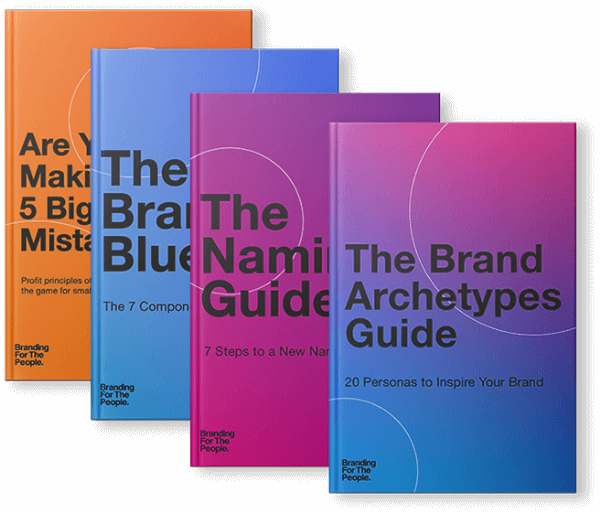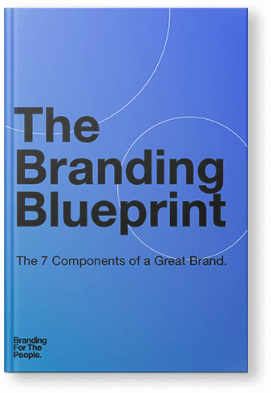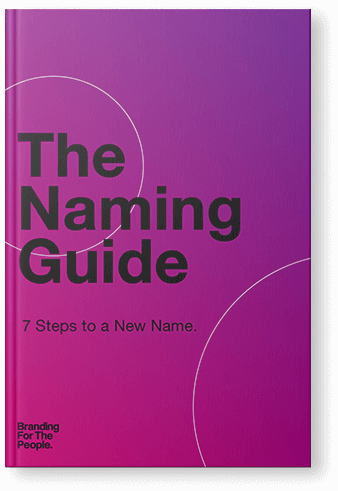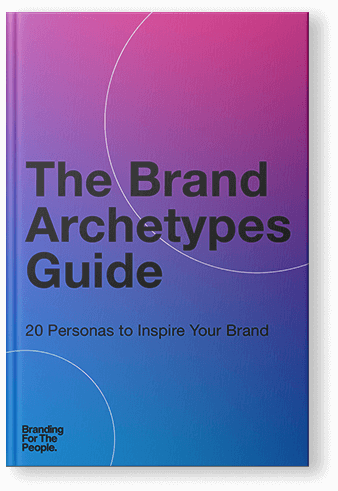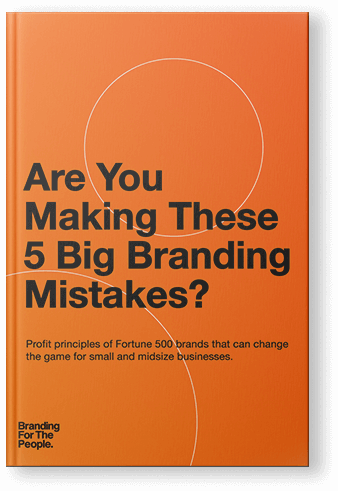It’s not uncommon for a small business or entrepreneur to approach branding as something they know they need, without a full concept of what branding actually entails. From our perspective, a really great branding agency should be able to educate their clients while having systems or packages designed to allow the agency to deliver the best results while customizing to the client’s needs.
Interested in working with a branding agency?
If you’re interested in working with a branding agency, one of the first things you can do to set yourself apart is getting familiar with creating a Request for Proposal. Commonly shortened to RFP, the Request for Proposal is exactly that—reaching out to a select list of agencies with your info, budget, needs, etc. and encouraging them to bid on your project.
While everyone should be aware of what an RFP is and how to craft one (more on that later), this is especially important for brands that really need a high degree of customization. You’ll be able to save time, money, and effort by submitting an RFP. And if you’ve taken the time to put one together, it indicates to the agency you’ve really thought your project through. You’re serious, not just a casual shopper. It shows you’ve identified somethins specific or discrete for a branding agency to bid on. If this sounds like you, we’ve broken down some guidelines into seven key things to include in a stellar RFP.
Important information to Include in an RFP for a Branding Agency:
01. All your basic contact info.
Step one? Make sure you’re as specific as possible about how to communicate with you or an appropriate representative. Make sure you include the contact person’s title, including email, phone, and address and be sure to note which is the best way to reach you.
You’ll obviously want to include your company’s name, but be sure to also include the brand for which you’re seeking the proposal. For example, there’s a big difference between “working with Apple” and “working with the iPhone,” and you want to keep it as clear and specific as possible.
02. The business of your business.
Branding Agency will want to know your background before starting to work with you, so tell them up front. Talk about your company history, how long you’ve been in business, and what products or services you offer. Make sure you clearly outline what sets you apart from your competitors (even if you’re not quite sure or not sure how to describe it). Knowing what differentiates you gives a context for the agency.
In this category, you’ll want to include information about what stage your business is at. Are you a startup, are you looking to scale, or are you already a leader in your industry? What is your current revenue, and are you looking to scale (and by how much)? Your branding needs are often dictated by where or what stage you are in your business, and the more detail you can provide, the better.
03. Your definition of success.
Success means different things to different people, and letting the agency know your metric right off in the RFP helps an agency decide to bid and craft the best proposal. You want to provide a clear picture of what you want this project to do. Describe not just the project, but also the scope of work and goals.
When considering an agency, you can break down their services into three categories. What are the 100% non-negotiable essentials (for example, in-house web development)? After that, take a look at nice to haves, which are useful services you could use collaboratively. For instance, many companies want an agency that will handle the look and feel of the design. For any number of reasons, they might want to use their own resources. And finally, optional things—those that are a bonus but not essential to your goals. This might include a company that has their own copywriter but might use input on strategy.
04. Your brand selection criteria.
You want to make it clear to the agency in the RFP what criteria you’ll be using to evaluate the proposals you receive. This also helps give the sense that you’ve really considered the project start to finish. It doesn’t have to be exhaustive, but 3-5 criteria goes a long way. Criteria can be as individual as your company, but common examples include past work, the agency’s track record with similar companies or with diverse industries, their location/proximity, if they have a diverse team, the level to which they can expect senior executive involvement, their size, reach, expertise, if they’re a specialty or boutique agency, where their strengths are (say, strategy vs creative), industry awards, and financial factors like flexible payment options.
05. The project’s timeline.
The agency needs to know if they have the resources available to meet your deadlines. You’ll need to make clear when proposals are due to allow them to submit on time. Agencies like to know when they can expect a decision. And of course, when the project kicks off, and when the brand must launch.
06. The decision-makers information.
It’s helpful to provide the manner your company makes decisions. If you are a very small company, an individual, or a startup, it’s probably just you or you and a couple of others. Even in smaller companies, decisions may be made by committee. And in some cases, while you’ll have one point of contact, decisions are subject to board approval.
07. Your budget or budget range.
And last but not least, the money. You want to be clear what your budget is and if it’s a hard number or if there’s a degree of flexibility. If you’ve researched the agency, you should have a pretty good idea of what their services cost. This means you shouldn’t be shooting so far out of your price range that it jeopardizes the partnership or really that there are any surprises.
There are lots of other things you could include in the RFP, but we consider these the essentials. In going through this process, you’ll likely have a much better idea of which agency is a good fit for you and your needs. And the agency will have everything it needs to pass back a proposal.



